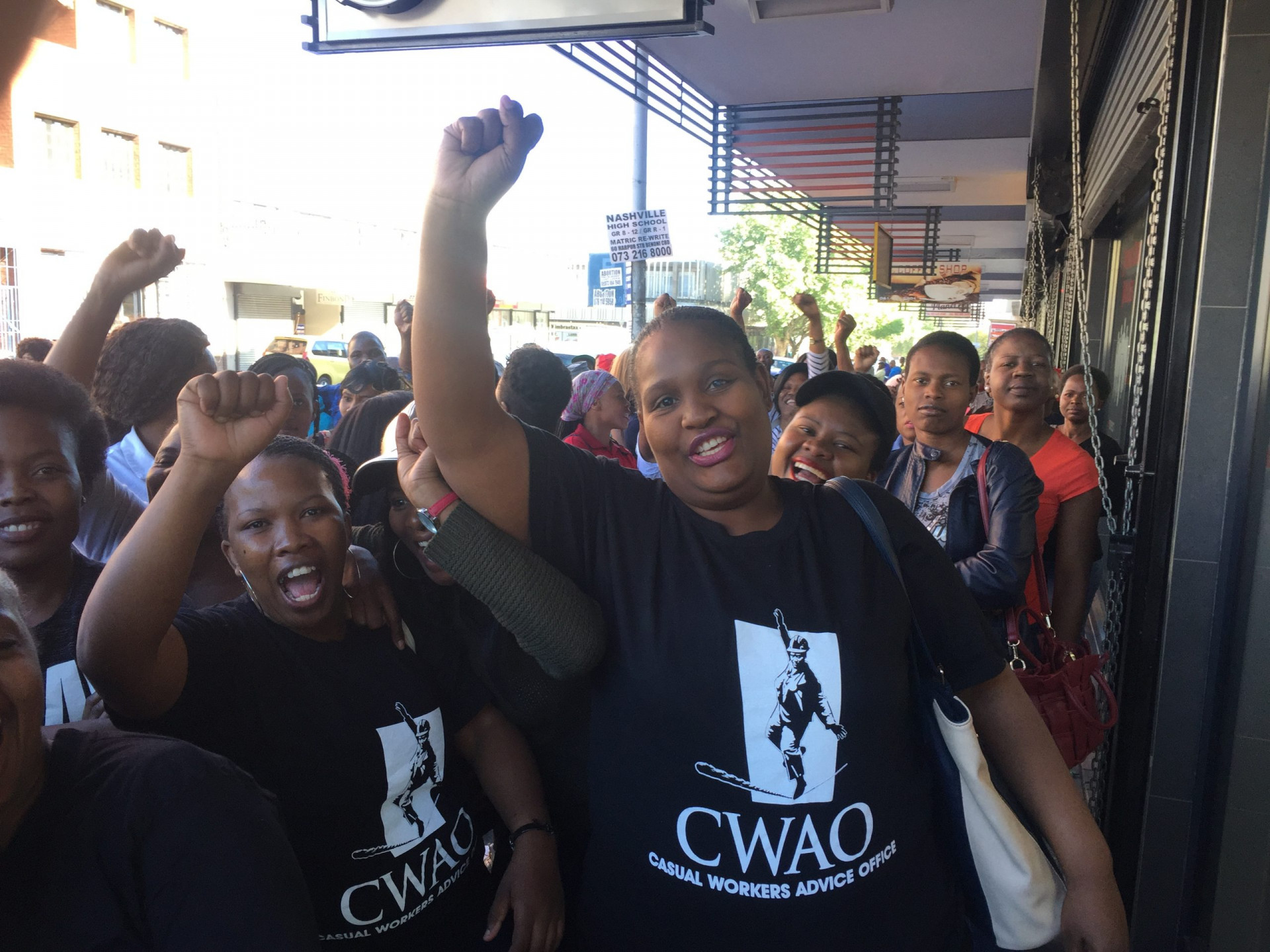by Mthetho Xali
The Casual Workers Advice Office (CWAO), Black Sash, the Maokeng Advice and Resource Centre and Ntombi Dladla took the Commission for Conciliation and Arbitration (CCMA) to the Labour Court on the 20 September 2016 to challenge CCMA’s rules on representation. They argued that the rule disadvantages many workers who do not belong to trade unions and who cannot afford to pay a lawyer. The rule in question, rule 25, states that only an office bearer, official or member of a registered trade union or a legal representative may represent workers at the CCMA. They wanted the Labour Court to change the rule to allow workers to be represented by advice offices, fellow workers and fellow parties to dispute so as to ensure fairness.
The CCMA and discretion
In response, CCMA stated that its new rule 35 (1) allows it discretion to allow other parties to represent workers. But the CCMA has never exercised this discretion. The Labour Court gave an order to the CCMA giving CCMA ten days to issue a practice note to all commissioners outlining guidelines on how the discretion must be exercised. Such guidelines must also have a provision that allows advice offices to represent workers at the CCMA. This effectively forces the CCMA to use its discretion to allow other parties to represent workers at the CCMA.
However the CCMA practice note has now made representation by other parties conditional. The worker is required to provide reasons to justify representation by the advice office. This is an unfair condition given that unionised workers are automatically allowed to be represented by their union officials.
Step forward
The CWAO correctly describes the Labour Court ruling as a major step forward in the rights of non-unionised workers who have previously been denied representation at the CCMA. Indeed, it is a major step despite the obstacles set by CCMA practice note. Workers who want to organise themselves differently and not in a union form will not fear that workers whose cases end up at the CCMA will not be represented by their fellow workers or their initiative. Workers will also have a choice of approaching an Advice Office to assist them with representation. This ruling also create a space for many vulnerable workers like casuals, contract workers and labour broker workers who have not been organised by traditional trade unions to experiment with an organising that is more appropriate to them, without fearing non-representation at the CCMA.
The unions’ failure
The established trade unions have failed to organise casuals, contract workers, labour brokers and vulnerable workers in general. This failure is due to trade unions not taking into account changes in the world of work that have resulted in changes in the composition of the working class, which is now characterised by an increase in the number of non-permanent workers with low pay and no benefits. Many trade unions continue to be stuck in organising along industrial lines or scopes despite outsourcing and labour broking that has blurred these industrial lines. Despite these fundamental changes, trade unions continue to prioritise organising of permanent workers who are relatively easy to arrange a stop order facility to deduct union subscriptions. This has contributed to perceptions among many workers that trade unions are more concerned about making money through subscriptions than serving and defending the interest of workers. Trade unions’ failure to consistently take up worker issues and the gap between elected union leaders and officials has made many workers disillusioned with trade unions. More than 70% of workers in South Africa are not union members.
The ruling potentially frees workers who are not satisfied with the trade unions. Many of the workers have remained in the unions so that they can have someone to represent them when they are in trouble with their boss and if their cases end up at CCMA. In fact the relationship between many workers and unions is no different to a relationship with an insurance company. Workers pay union monthly subscription fee and in return they want to be serviced. One of the critical service is representation at CCMA.
New possibilities
The ruling opens new possibilities for non-unionised workers and those dissatisfied with unions to explore new forms of organisation. Worker initiatives like independent workers’ committees that were established by workers during the 2012 strike when mine workers revolted both against mine bosses and their union, National Union of Mine Workers, will be strengthened by this ruling. Workers will now not be confined to registered trade unions because of a requirement to be represented by them in the CCMA. Self-organising initiatives and workers’ collective struggles as well as using spaces opened by the Labour Court ruling on representation at the CCMA is the way-out for non-unionised workers and those dissatisfied with trade unions.
